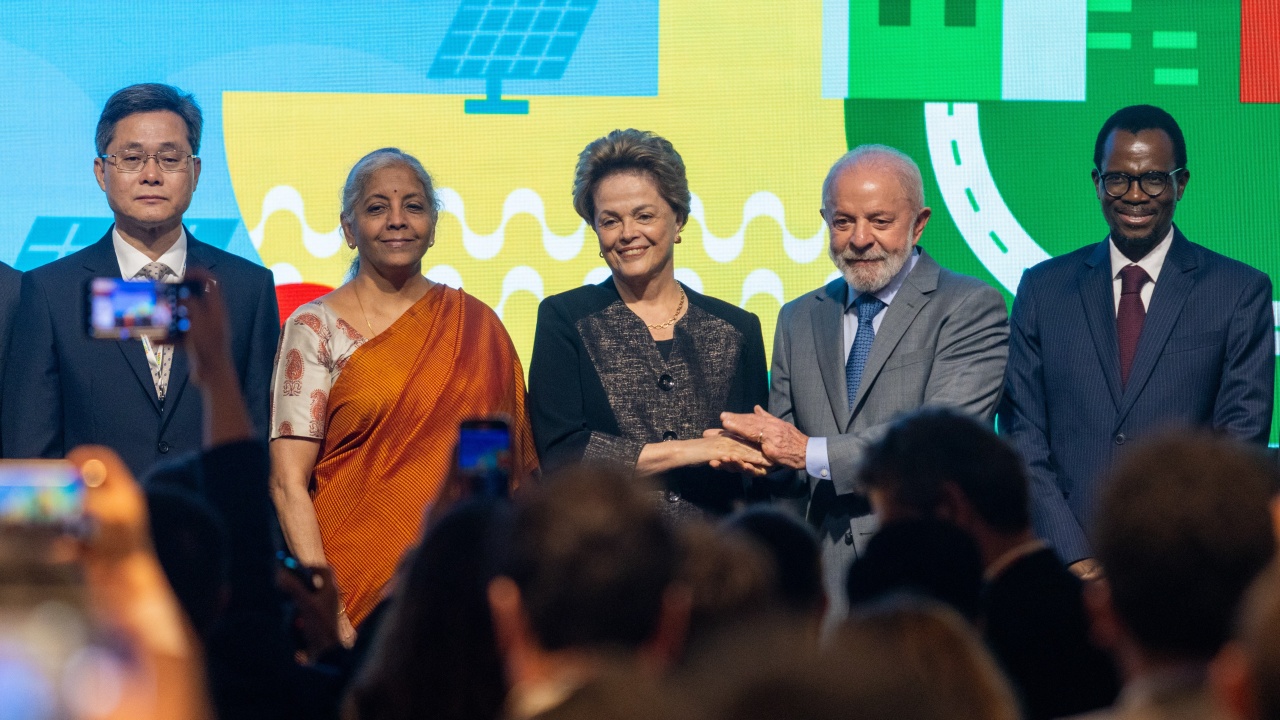Climate Financing is the focus of the BRICS Bank
According to Lula, the bank has already invested $40 billion in climate-related initiatives. The current head of the institution, Dilma Rousseff—former president of Brasil—stated that the NDB must be at the forefront of investments in climate action and energy transition

The 10th Annual Meeting of the New Development Bank (NDB) opened on Friday, July 4, in Rio de Janeiro with a clear focus: climate financing. Participants highlighted the bank’s growing portfolio in clean energy, energy efficiency, environmental protection, and water supply—investments that now total around $40 billion. According to President Luiz Inácio Lula da Silva, the bank’s current goal of allocating 40% of its financing to sustainable development initiatives will be included in the final declaration of the BRICS Summit, to be held on July 6 and 7, also in Rio.
Founded in 2015 by the original five BRICS countries—Brasil, Russia, India, China, and South Africa—the NDB was established as a multilateral lender to fund infrastructure and sustainable development projects in emerging and developing economies. Dilma Rousseff, former president of Brasil and now head of the bank, emphasized that the institution must lead global investment efforts in climate adaptation and energy transition, with a special focus on countries most affected by extreme weather events. Lula noted the bank’s swift response to the 2024 floods in Rio Grande do Sul, underscoring its agility in delivering emergency funds.
Under the United Nations Framework Convention on Climate Change (UNFCCC), climate finance refers to all public or private, national or international, bilateral, multilateral, or unified investment aimed at supporting actions to mitigate or adapt to climate change.
In Brasil, the NDB has already approved 29 projects totaling $6.4 billion through its Board of Directors. One of the most recent is the Pará Sanitation Development Project, approved in March, which includes a $50 million investment to improve basic sanitation in Belém—the host city of the UN Climate Conference (COP30) in November—as well as in seven other municipalities in the state.
The bank raises capital both from its member countries and through international markets. One of its strategies includes the issuance of bonds in local currencies, aligned with its strategy to diversify transaction modalities beyond the US dollar. For the 2022–2026 strategic cycle, the institution has set a funding target of $30 billion.
The institution comprises ten member states: in addition to the five founding countries, Bangladesh, the United Arab Emirates, Egypt, Algeria, and, most recently, Uruguay—which is currently undergoing the accession process. The expansion is expected to continue through at least 2026 as the bank seeks to grow its influence and solidify its role as a key platform for cooperation among emerging and developing economies.
By Everton Victor and Julia Lima. Content originally published by UERJ’s Scientific News Agency (Agência de Notícias Científicas, Agenc).